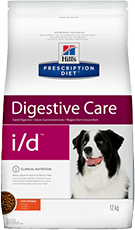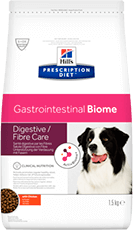Why is my dog sick

Why is my dog sick? My dog has diarrhea. My dog doesn't eat. Most owners, if they have not yet encountered this problem, will most likely sooner or later ask themselves one of these questions. However, it is worth noting that the voiced manifestations of gastrointestinal disorders are only symptoms of a disease, and it is important to determine its true cause. What diseases of a pet can cause these symptoms? How to understand what to do in order to respond to the problem in time? We will answer the most exciting questions in our article.
Vomiting and regurgitation: differences
Before we get to the causes that can cause a dog to vomit, let's define the difference between vomiting and regurgitation. When dogs have nausea, they forcibly empty the contents of the stomach. As a rule, before that, you can notice salivation in the dog, abdominal muscle contractions – everything is like in humans.
Regurgitation is a passive movement that removes undigested food and liquid. Unlike vomiting, signs of regurgitation are difficulty breathing and coughing. Regurgitated substances are not digested and "at the exit" can retain the cylindrical shape of the esophagus.
Owners with experience know that vomiting in dogs is not uncommon. Sometimes an absolutely healthy dog may have this symptom for no apparent reason, but without continuing. The reason for such a single nausea of the dog may be too fast ingestion of food or, for example, she could eat grass during a walk. These are two examples when it is possible not to sound the alarm.
How do you know when to worry? Most likely, the veterinarian will confirm that a single vomiting without continuation and some other additional symptoms is not a reason for strong feelings, however, if we are talking about continuous, abundant, chronic vomiting with concomitant symptoms such as fever, apathy, anemia, measures should be taken. And the best solution in this case would be to contact a veterinarian for consultation and face-to-face examination.
Causes of vomiting
Vomiting can be a symptom of many diseases, disorders and complications. For example, such as:
- Acute gastroenteritis is an inflammation of the stomach, which can be caused by various factors, for example, infections in the gastrointestinal tract, ingestion of foreign objects; poisoning with toxins and poisons, food allergies, stress.
- Colitis – inflammation of the colon (acute or chronic). The reasons may be helminths, frequent changes in diet, intolerance to food components, foreign objects.
- Pancreatitis – the true cause of this disease often remains unknown. In fact, it is an inflammation of the pancreas.
- Renal or hepatic insufficiency – since both the kidneys and the liver are filtering organs, even a partial violation of their function can lead to intoxication of the entire body and as a manifestation of intoxication – vomiting.
- Exocrine pancreatic insufficiency is actually a deficiency of pancreatic enzymes, which makes it difficult to digest food normally. Provokes inflammation in the small intestine, constant diarrhea. Pets lose weight due to the lack of necessary nutrients.
How to diagnose the true cause of vomiting?
Veterinarians are often compared with pediatricians, since animals, like small children, do not know how to speak, their parents speak for them. In cases when it comes to acute vomiting, diarrhea, refusal of food, the correct determination of the cause will also be a very important factor. This will allow you to provide the necessary assistance as quickly as possible. Therefore, in order to achieve good results, it is of great importance how open the owners are with their veterinarian. To help the veterinarian narrow down the "circle" of suspicions, it is important to tell what happened to the pet, to preserve the sequence of increasing symptoms, if there are several of them. For example, if you were walking on a hot day or a dog was waiting for you in the car on the same hot day, most likely she has heat stroke, in which case this will be one treatment tactic. If a dog has been "scouting" in a trash can, most likely the reason is poisoning or swallowing foreign objects, the tactics will be different. Or, if from great love the pet often indulges in cheese, sausage and other fatty foods, the pet may develop chronic pathologies, for example, pancreatitis.
Nutrition and treatment
Malfunction of the digestive system is a fairly common phenomenon. In most cases, it does not require special help. However, sometimes it happens that a pet needs special food to maintain its health, which, depending on the problem, will support the pet in its painful condition. The choice of diet is very important to help solve gastrointestinal problems. As a rule, to make a diagnosis, the doctor may prescribe additional blood tests (general clinical analysis and biochemical blood analysis). In addition to laboratory diagnostic methods, ultrasound, gastroscopy or X-ray may be required, or maybe all together. After diagnosis by a veterinarian, treatment is prescribed, which, in addition to medicines, usually includes the use of a diet. Most often, a special diet helps the pet to cope with the disease faster. Sometimes one feed can solve an existing problem.
There are several diets in Hill's line to maintain gastrointestinal health.
First aid for gastrointestinal disorders
Hill's Prescription Diet i/d Dog Food dry with chicken a specially designed diet to restore the gastrointestinal tract, with a clinically proven effect. This is a highly digestible diet, which, thanks to its composition, promotes the assimilation of nutrients in a pet, which is difficult for problems with the gastrointestinal tract, but simply necessary to maintain the health of the whole organism. The food contains a high amount of natural antioxidants – substances that are able to "block" the oxidation processes that initiate free radicals (oxidizing molecules), attacking a normal cell. This is a micro-picture of what happens to the pet, it is not visible to the naked eye. However, most people are familiar with the macrocard, this process occurring at the cellular level manifests itself as vomiting, diarrhea, apathy, lack of appetite. The rupture of this phenomenon contributes to the recovery of the pet. Due to the quality and high digestibility of the ingredients, the food is also suitable for feeding puppies.
Protein content – 22.7%; fat -12.8%.
Nutrition for beneficial Microbiota
Hill's Prescription Diet Gastrointestinal Biome Dog Food . Hill's nutritionists and veterinary specialists have developed a unique Hill's Prescription Diet Gastrointestinal Biome with the advanced technology of ActivBiome+ ingredients. This diet actively supports regular normal stools and helps reduce the risk of digestive disorders in the future, as the food nourishes the intestinal microbiome. There is increasing evidence that the intestinal microbiome, which is a collection of microorganisms that include bacteria, viruses, protozoa and fungi living in the gastrointestinal tract, plays a key role in gastrointestinal diseases. We know that patients with acute and chronic diarrhea have a less diverse microbiome than healthy animals, as well as lower concentrations of beneficial bacteria important for the production of fatty acid metabolites (such as Omega-3 and Omega-6), which are necessary for intestinal repair and healing. Nutrition plays a role in the fight against this dysbiosis. Hill's Prescription Diet Gastrointestinal Biome is clinically proven to help change liquid stools to a decorated one in 24 hours. The action of the feed is aimed at a long-term effect.
Protein content – 21.0%; fat – 13.4%
How to help small breed dogs under stress?
Hill's Prescription Diet i/d Stress Mini Dog Food a godsend for owners of small breeds of dogs, who, due to their physiological characteristics, unfortunately, most often suffer from gastrointestinal problems on the background of stress. The food meets the needs of dogs with gastrointestinal problems, it is an easily digestible diet enriched with fiber for the growth of beneficial intestinal microbiota, contains ginger, which soothes digestion and a patented anti-stress formula for stress control.
Protein content – 23.3%; fat content – 7.8%
Low-fat feed
Hill's Prescription Diet i/d Low Fat Food . For various reasons, it happens that the digestion of fat in the digestive tract of a pet becomes difficult. To maintain the health of animals with this problem, a low-fat diet is necessary. In this case, Hill's Prescription Diet Low Fat with a low fat content is suitable, which contributes to the restoration of the gastrointestinal tract. How does it work? Ginger soothes the digestive tract, making it easier to digest food. High levels of Omega-3 fatty acids break the cycle of inflammation and have a positive effect on the gastrointestinal tract. Prebiotic fibers promote the growth of beneficial gut microbiota.
Protein content – 23.2%; fat – 7.8%
Very often owners get lost and do not know when and to what diet it is best to transfer from a diet. To choose a diet, determine the duration of use and the possibility of switching to everyday food, to prevent possible complications, it is always better to contact a veterinarian. If, however, the transfer to everyday food is recommended by a veterinarian, we recommend that you transfer to feed Hill's Science Plan Sensitive Stomach & Skin for Adult dogs of small breeds with chicken or Hill's Science Plan Sensitive Stomach & Skin for Adult dogs of medium breeds with chicken .
The article was prepared by Hill's expert, veterinary consultant.

